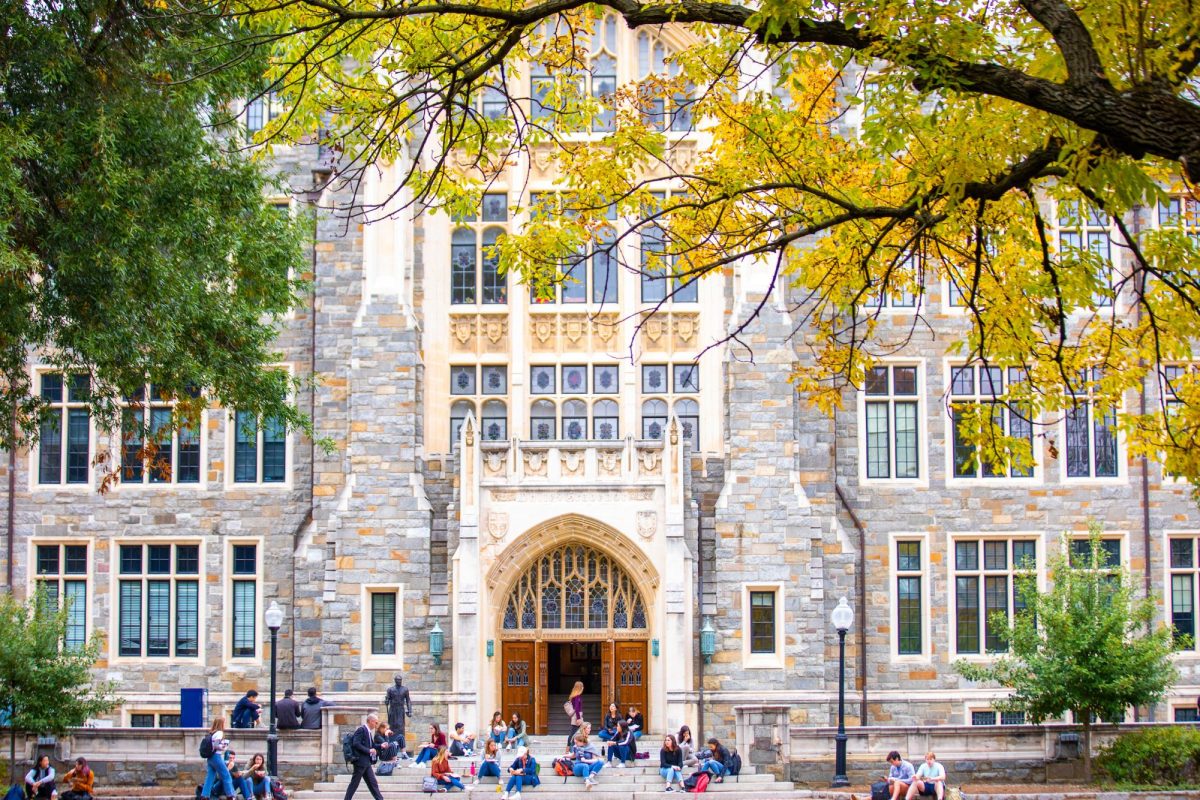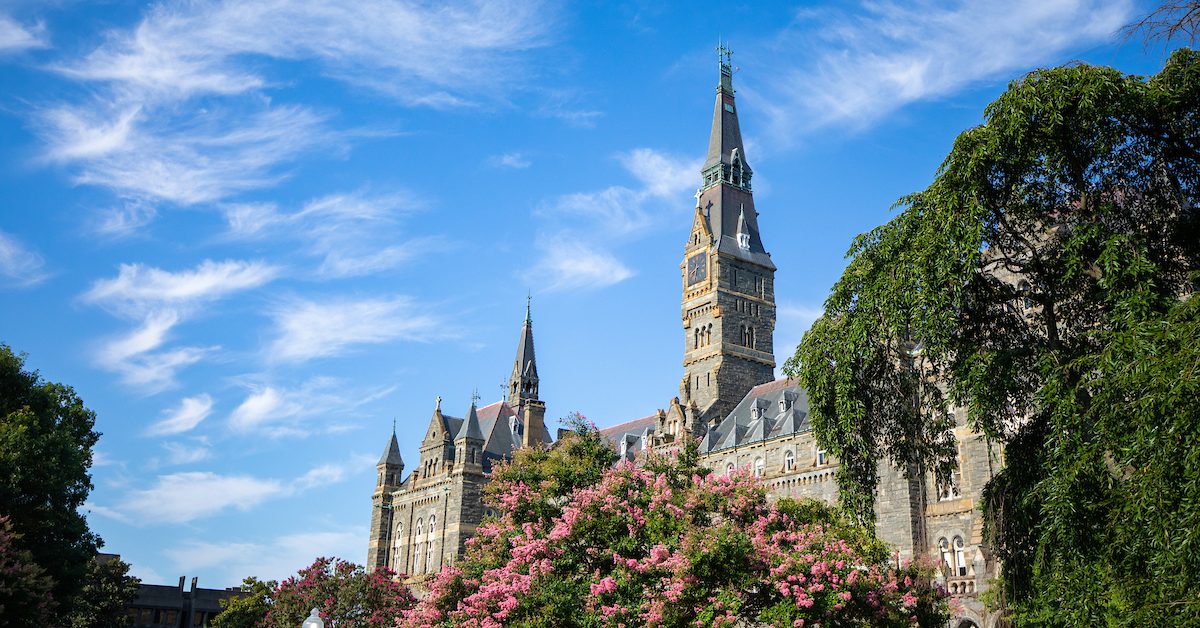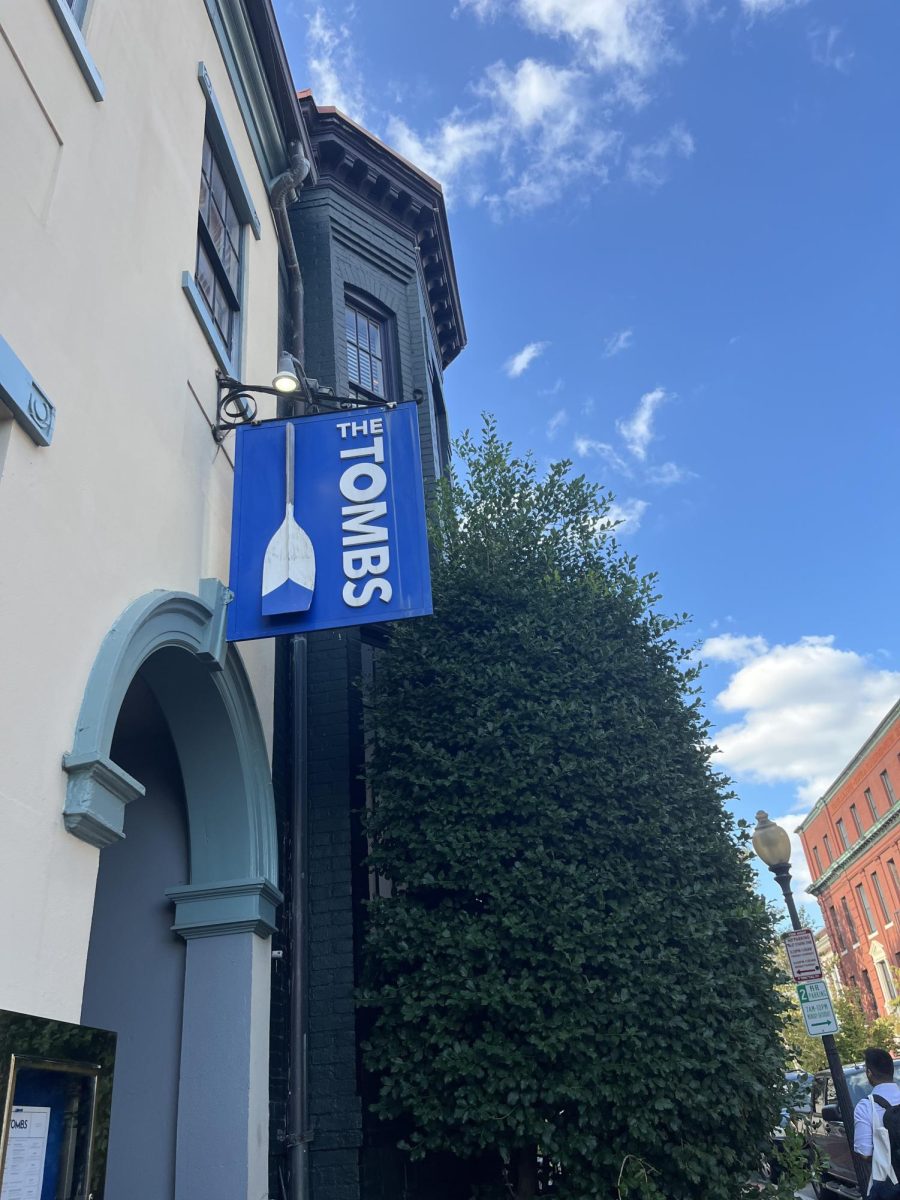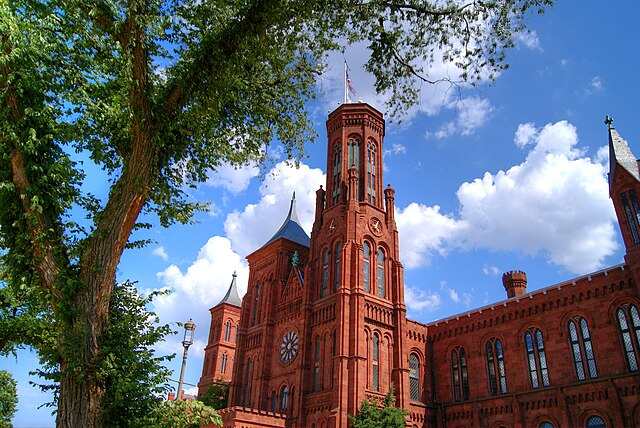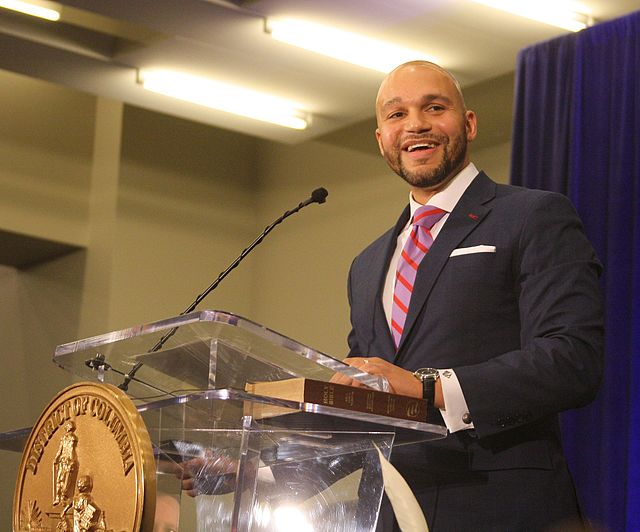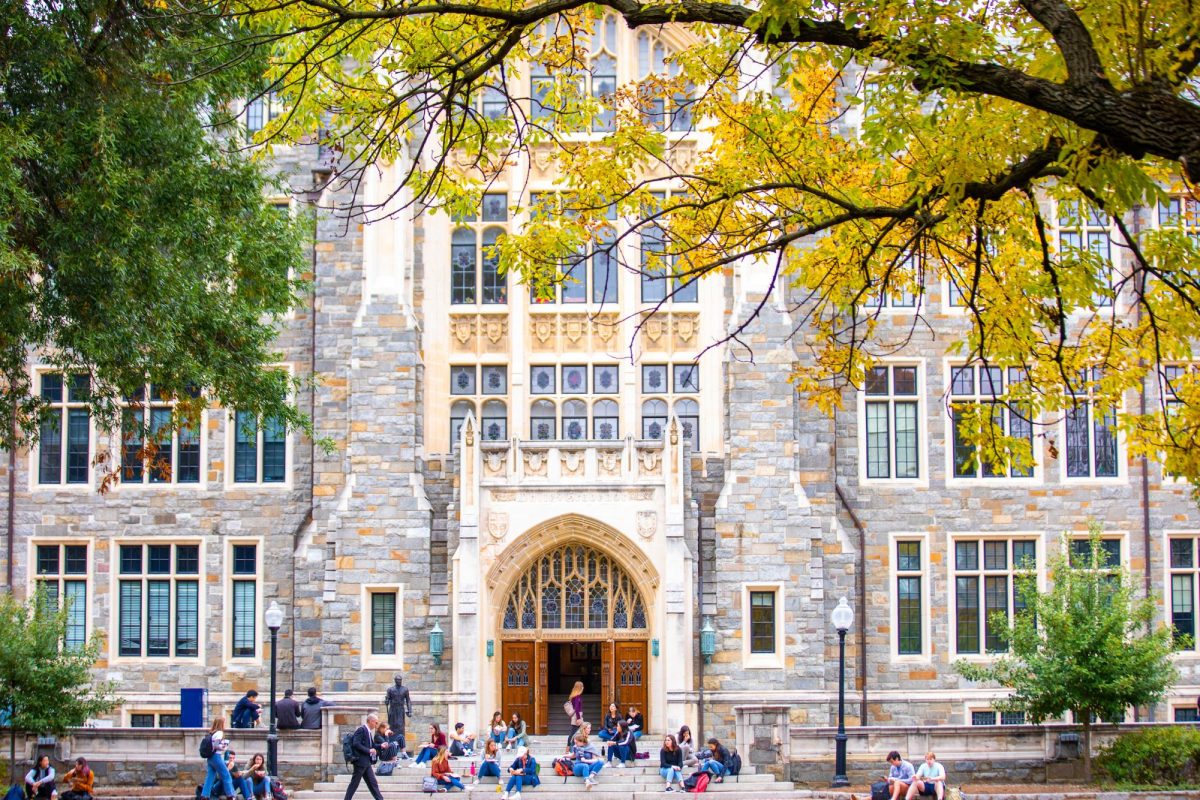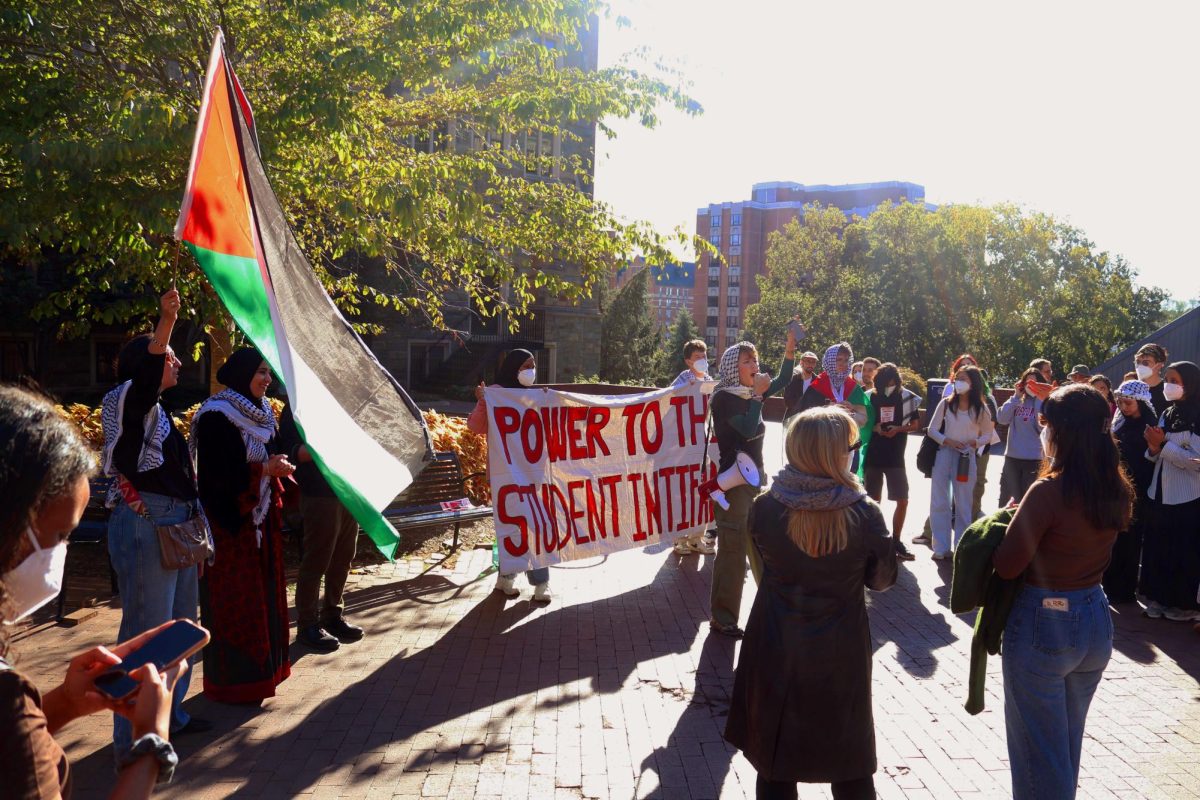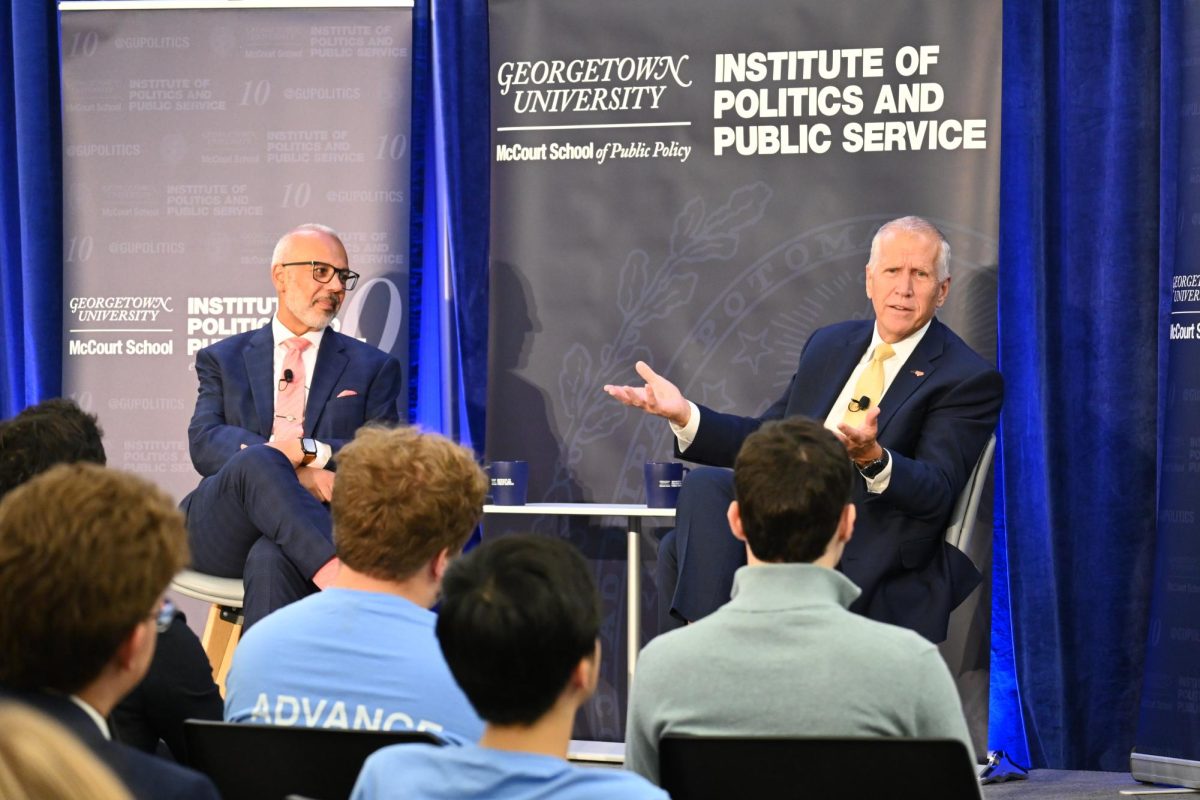The Georgetown University Student Association (GUSA) Senate, Georgetown’s student government, passed eight bills, including legislation on student engagement in GUSA, transportation services and free speech at its Oct. 5 meeting.
The non-binding legislation the GUSA Senate approved included bills that establish specific email addresses for each class to improve GUSA’s student outreach, call for more reliable Georgetown University Transportation Shuttle (GUTS) buses to the Capitol Campus route and advocate for a sustainable Halloween event in partnership with the Earth Commons, a university sustainability initiative. The senate also passed bills urging the university to establish a space studies minor, create a free speech zone at the Capitol Campus, add reporting forms for menstrual products to bathrooms and create a LinkedIn premium trial program for the Georgetown Scholars Program, a program for first-generation and low-income students.

A final bill amended the bylaws of GUSA’s Diversity Fund, a fund that offers financial support to cultural organizations on campus.
Senator Jacob Intrator (CAS ’27) said the university lacks the infrastructure to foster student engagement with GUSA, something the outreach bill aims to address.
“All of us are very involved in GUSA, but the student body as a whole is not as involved in GUSA as we want,” Intrator said at the meeting. “There is not a direct known mechanism for the student body to directly engage with the senate.”
The bill, which passed 10-3, calls for the creation of email addresses for each class to increase student communication with GUSA.
The GUSA Senate unanimously passed the bill advocating for more reliable arrival and departure times for GUTS buses along the Capitol Campus route.
Senator Asha Gudipaty (CAS, McCourt ’27) said GUTS buses to the Capitol Campus and 55 H St., the building for Capitol Campus housing, often arrive and depart off schedule.
“Specifically, the Capitol Campus and the 55 H weekend shuttle have not been as reliable as they could be, regarding specifically leaving early and then on weekends not showing up, and so students on the Capitol Campus are quite frustrated about this,” Gudipaty said at the meeting.
Senator Roan Bedoian (CAS ’28) said the bill may interfere with GUSA’s support for the GUTS bus workers in response to a university plan to require workers to either transfer to an outside contractor, which would mean they are no longer university employees, or shift to a position in another department, which often pay less.
“I worry right now about jeopardizing those employees who are already about to have their benefits and their positions with the university cut so significantly,” Bedoian said at the meeting. “So, it’s not that I disagree at all with any of the intentions of the bill. Rather, I’m worried about passing it at this exact moment.”
The senate unanimously passed an act supporting the creation of a space studies minor program and another urging the university to establish a free speech zone on the Capitol Campus.
Senator Zadie Weaver (CAS ’28) said student organizations are limited in their ability to put up flyers and table at the Capitol Campus in comparison to the main campus.
“This act establishes a free speech zone on the Capitol Campus,” Weaver said at the meeting. “Student groups, especially ones that have Capitol Campus representatives, who are on the Capitol Campus flyering or tabling — they don’t have a designated place for free speech.”
“This is focused on students because, right now, students have no mechanisms to express themselves,” Weaver added.
Saahil Rao (SFS ’27), speaker of the senate, said creating a free speech zone on the Capitol Campus would ensure that organizations that are not recognized by the university, such as H*yas for Choice, a student group that advocates for reproductive rights and abortion rights, can express their beliefs.
“I’m hearing from a lot of people in H*yas for Choice that they want to extend their operations to Capitol Campus, but the fact that there is no free speech zone can make it difficult,” Rao said at the meeting.
Senator Cameran Lane (CAS ’28) said it is important for GUSA to defend students’ right to freely express themselves.
“I think free speech shouldn’t be something that ticks people off,” Lane said at the meeting. “I get that in this day and age, we are in a very complicated spot, but free speech is still fundamentally free speech. It’s something that I think every group should have access to, that every person should have access to.”
The senate also passed a bill introducing a trial program to offer students in the Georgetown Scholars Program access to LinkedIn Premium, as well as a bill to create a reporting form for menstrual products in bathrooms.
Weaver, who introduced the bill for menstrual product reporting, said it is important to maintain an appropriate supply of such products in accordance with Washington, D.C. code.
“This is specifically a violation of D.C. code and has been a specific thing that people have asked to rectify,” Weaver said.
In addition to the meeting, the GUSA Election Commission announced Oct. 8 that Eli Amos (CAS ’27) won the special election for a vacant Class of 2027 senate seat.


